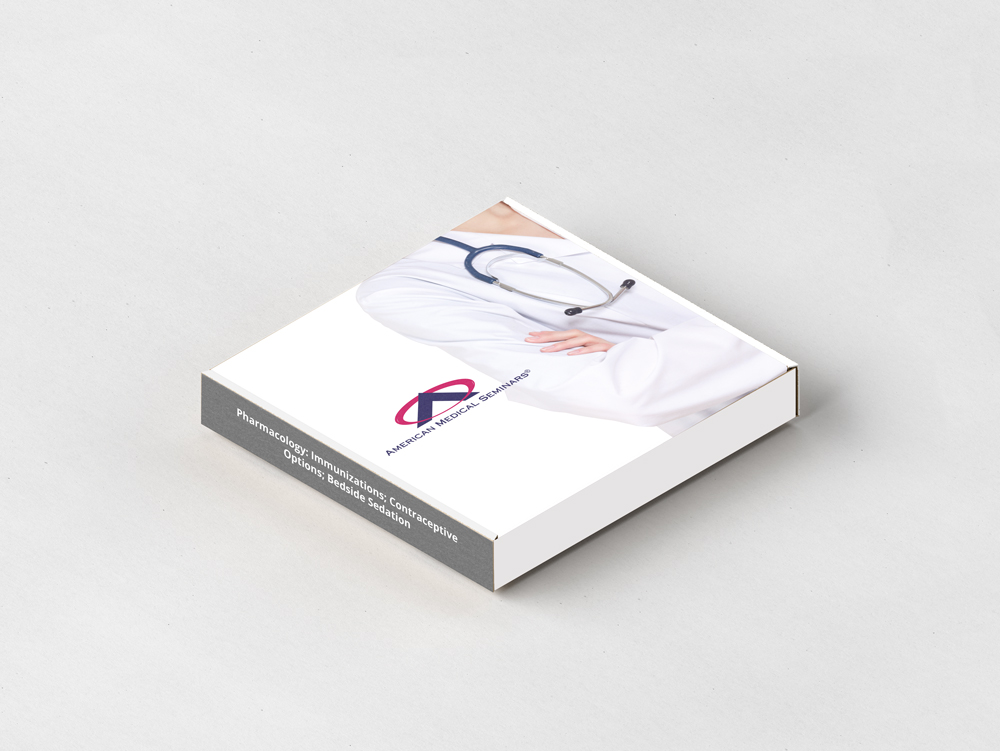Product Description
Title: Family Medicine – Pharmacology: Immunizations; Contraceptive Options; Bedside Sedation
Faculty: Vandana Y. Bhide, M.D., F.A.C.P., F.A.A.P., A.B.I.H.M.; Kenneth H. Butler, D.O., F.A.C.E.P., F.A.A.E.M. and Stephen J. Gluckman, M.D., F.A.C.P., F.I.D.S.A.
Original Release Date: July 1, 2019 Expiration Date: July 1, 2022
TOPIC 1: Immunizations for Adults.
Upon completion of this session, the participant should be able to: GL, COMP
- Differentiate between myths and facts concerning vaccine administration.
- Based on ACIP up-to-date guidelines, evaluate indications, contra-indications, efficacy and side effects of adult immunizations.
- Recommend immunizations indicated for different risk groups such as health care providers, college students and inhabitants of long term care facilities.
TOPIC 2: Contraceptive Options – Helping Women Make an Informed Choice.
Upon completion of this session, the participant should be able to: COMP
- Identify long acting reversible contraceptives as being the most effective agents for prevention of pregnancy..
- Analyze the different types of oral and injectable hormonal contraceptives.
- Evaluate barrier and other non-hormonal types of contraception.
- Recognize emergency forms of contraception.
TOPIC 3: Bedside Sedation.
Upon completion of this session, the participant should be able to: COMP, GL
- Analyze patient characteristics and clinical presentations where the most important risk is for apnea.
- Debate pulse oximeter and wave form capnography – do we need it?
- Assess and specify when sedation is an appropriate consideration for the critically ill.
- Employ the use of sedation in the head injured patients as per the Clinical Practice Guidelines for emergency department use of Ketamine
- The receipt for any incentive-associated purchase will designate the value of the gift card separately from the cost of the learning activity.
- This incentive may have implications on your tax reporting obligations. Any reimbursed amount must be declared as personal income for tax purposes.


